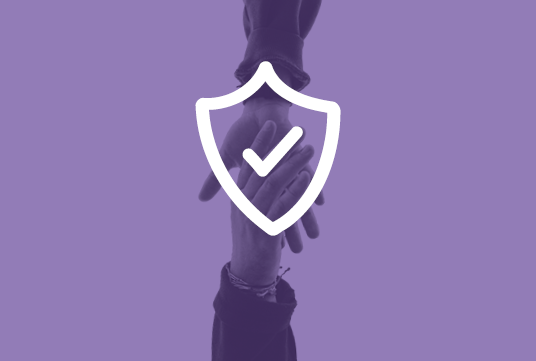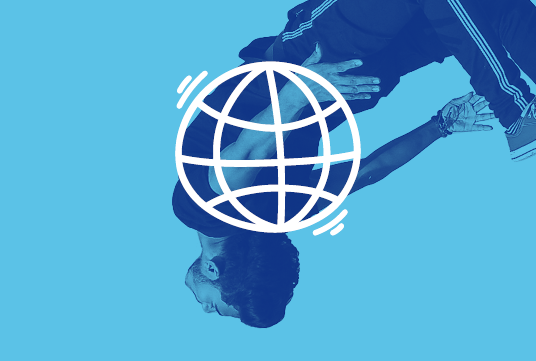No one could have predicted the impact of COVID-19 on the UK workforce and how it has shifted and reshaped the HR profession completely.
We speak to HR expert Dawn May, Senior Manager for Walters People HR division, who offers insights into the evolving HR landscape as it adapts and grows in the face of the recent pandemic, providing top tips on how to keep your HR career on track, both in the short term and long term
Following the recent crisis, how has the face of HR changed?
“It goes without saying that every industry and sector globally has been impacted to some capacity since the beginning of the outbreak. HR in particular has experienced a paradigm shift from the business as usual, “normal” HR duties, to suddenly shifting to working from home (WFH) full time. If businesses didn’t have the capability to roll out from March 23rd remote working, they have had to work as quickly as possible to make it happen and ensure continuity of service / minimise downtime, whilst trying to maintain well-being, engagement and productivity. For many, this has included producing new policies and procedures around WFH and ensuring the technology is in place to support this new way of working and onboarding.
HR teams then made a move to making swift decisions regarding furlough, learning what that means, how to payroll, who was eligible etc. - all new learnings for HR professionals.
Since then, we have seen another shift again, to now “returning to work” and making the offices Covid-safe, or planning on what the new normal looks like, and whether that is being based from home for the significant future whilst also looking at employees who may need to return to offices and what they can do as a business to make sure that’s possible safely.
In these turbulent times, an HR professional has to stay ahead of the curve in order to avoid pitfalls further down the line as the new environment continues to shift and change. The industry is experiencing changes across all fronts, changing the focus and priorities of HR teams time after time, highlighting the continually changing face of the HR profession.
There have certainly been some positives to come out of the C-19 outbreak. Most companies have confirmed that engagement has increased significantly since the beginning of the outbreak, with more face-time engagement with all levels of the workforce that would not have been achieved in the office environment. This is mostly achieved via regular Zoom or Teams meetings to ‘check-in’ on staff, as well-being and mental health remain a top concern for HR teams. We have seen many companies go that extra mile and send out care packages to their workforce as a reminder that ‘we are in this together’ - a great initiative that maintains connectivity and that personable touch with a remote workforce.”
What are the key challenges HR professionals face in a COVID-19 future?
“The sudden shift of work culture and reshuffle of HR priorities from day to day brought with it various challenges. At first the key challenge was adapting to keeping a remote workforce engaged and providing the right channels to stay connected.
Then there are complexities and grey areas around furloughing and as that eases what that means from a technical / day to day aspect, everyone is in the same boat learning as these changes happen.
The return to work phase will be the next new challenge for everyone and what will remain as the number one priority as we gradually re-introduce the workforce back into the office is employee well-being. Returning to work policies are government guided and so the complexities of this area are still unknown.”
What technical skills are in high demand following the crisis?
Short term:
- Change & transformation: As businesses in certain sectors seek efficiencies in processes & structurally, we are seeing an increase in demand for professionals with this particular skill set in the short-term. The prediction is there could be more work around TUPE and M&A.
- Organisational design / development: HR teams will be expected to present visual representations of business restructuring and the implications this has on the business.
- Employee Relations: due to the expected increase in redundancies / dismissals we expect there to be an increased need for ER professionals dealing with claims and tribunals as there could be an increase in cases regarding unfair dismissals.
Longer term:
- HR specialists looking back at systems, efficiencies, AI & robotics which were the key areas pre-COVID. These will be key to decrease internal costs
What soft skills are in high demand following the C-19 pandemic?
“As mentioned, it is key during a time like this that HR is aware of stress, anxiety and other mental health issues and are mindful and empathetic of individual situations. This includes the differing opinions on the work environment and individuals’ personal needs regarding work.
Remote working initially (in general) saw a huge increase in engagement, from many people I have spoken too I believe engagement increased, but finding a balance of enough “Teams or Zoom” calls vs too many has been a learning curve. We have seen more “Friday afternoon virtual drinks” and “fancy dress Fridays” so engagement I feel has in general been great for many companies. A key concern that has arisen from this increase in engagement however is ‘video fatigue’ and the need to be aware of the ‘burnout’.
Moving forward, the way managers and leaders run their teams / manage their staff is likely to change as flexible working becomes even more important and the work-life balance is continually questioned. Improvements to work-life-balance has been something professionals across all sectors have been looking for, for a long time, but it is important to recognise not all sectors or even people are not looking for the same thing, and that will be hard to manage. Hopefully with more trust in their employees, businesses will be able to allow more flexible and remote working.
Remote working has been enabled with the right technology but I don’t think anything can replace a face to face meeting, we are seeing more interviews happen via Zoom & Teams but also many people keen to go into offices (adhering to social distancing of course) and see office spaces and physically meet people! Luckily tech has allowed us to work successfully during this COVID-19 period.
Overall, soft skills are predominantly required around mental health, well-being, and engagement primarily within the HR profession.”
What recommendations would you give an HR professional to keep their career moving forward in a COVID-19 future?
“Concentrate on continuous learning and development, the market is highly competitive at present, however that doesn’t mean you can’t get a new role if you want one! Yes, it means you have more competition however certain sectors are very busy including e-commerce, food / retail FMCG, technology companies and healthcare – there are still ample opportunities out there.
Try to put yourself forward more than ever to learn new skills internally and grow your CV and experience as much as possible. If you find yourself out of work, update your CV, LinkedIn, make new connections and don’t give up! There are roles out there and there will be more to come.”













